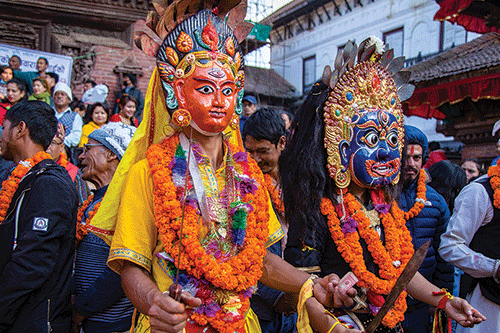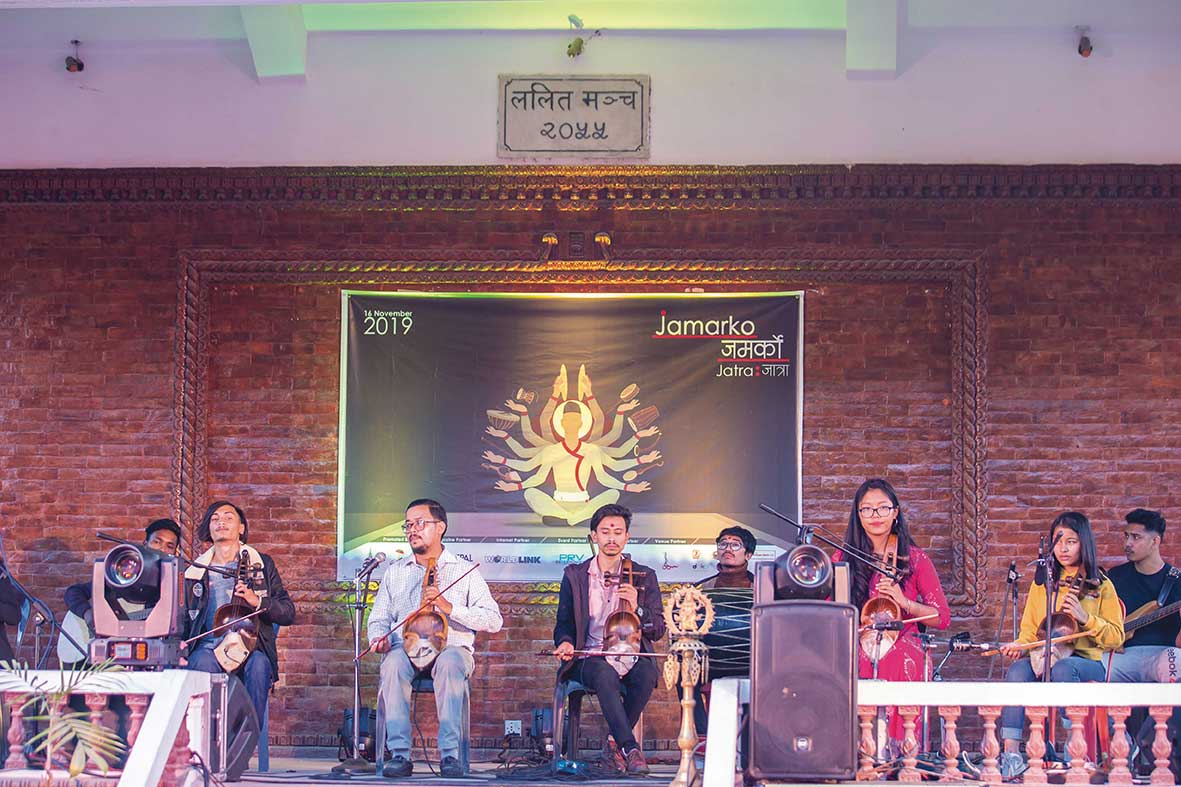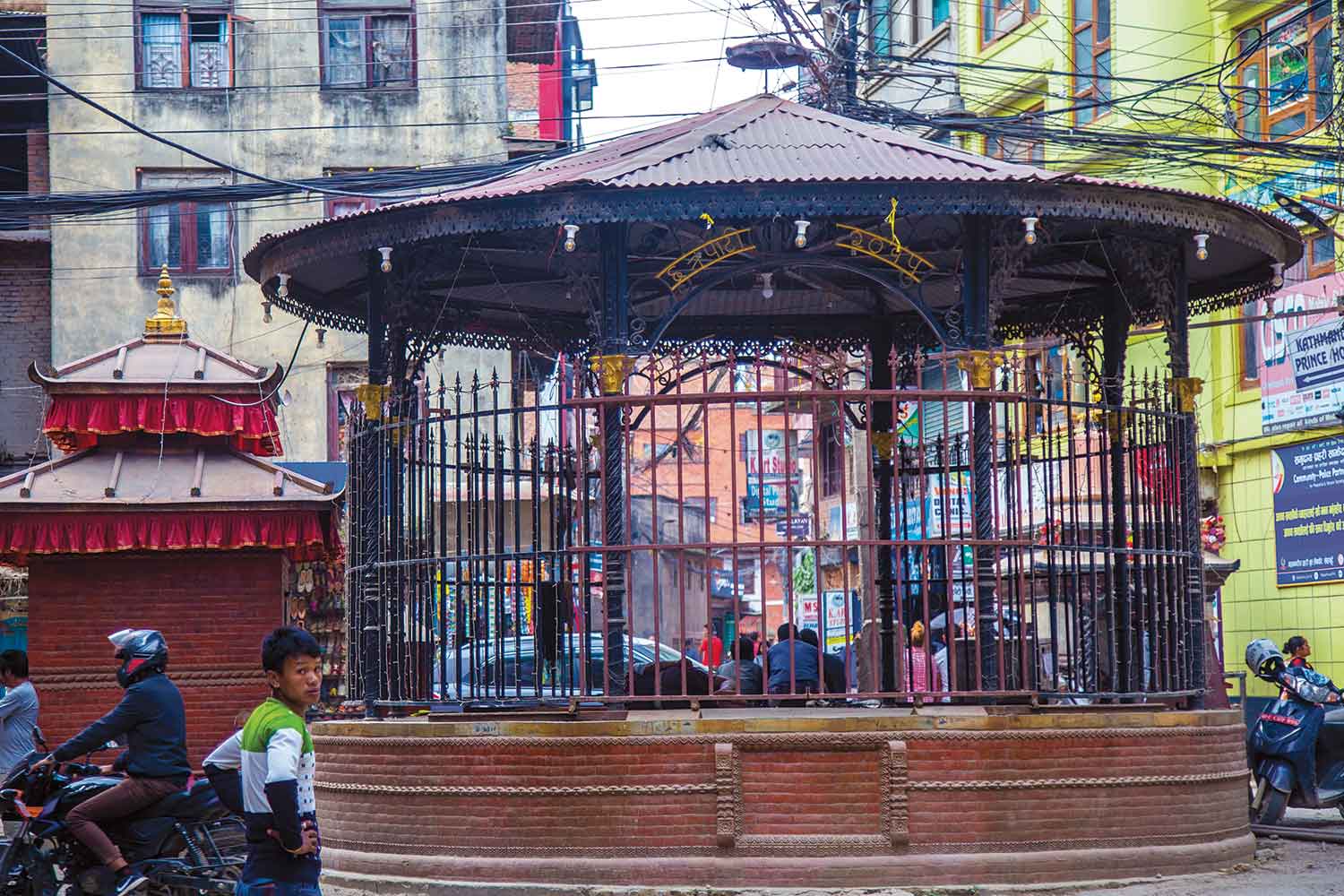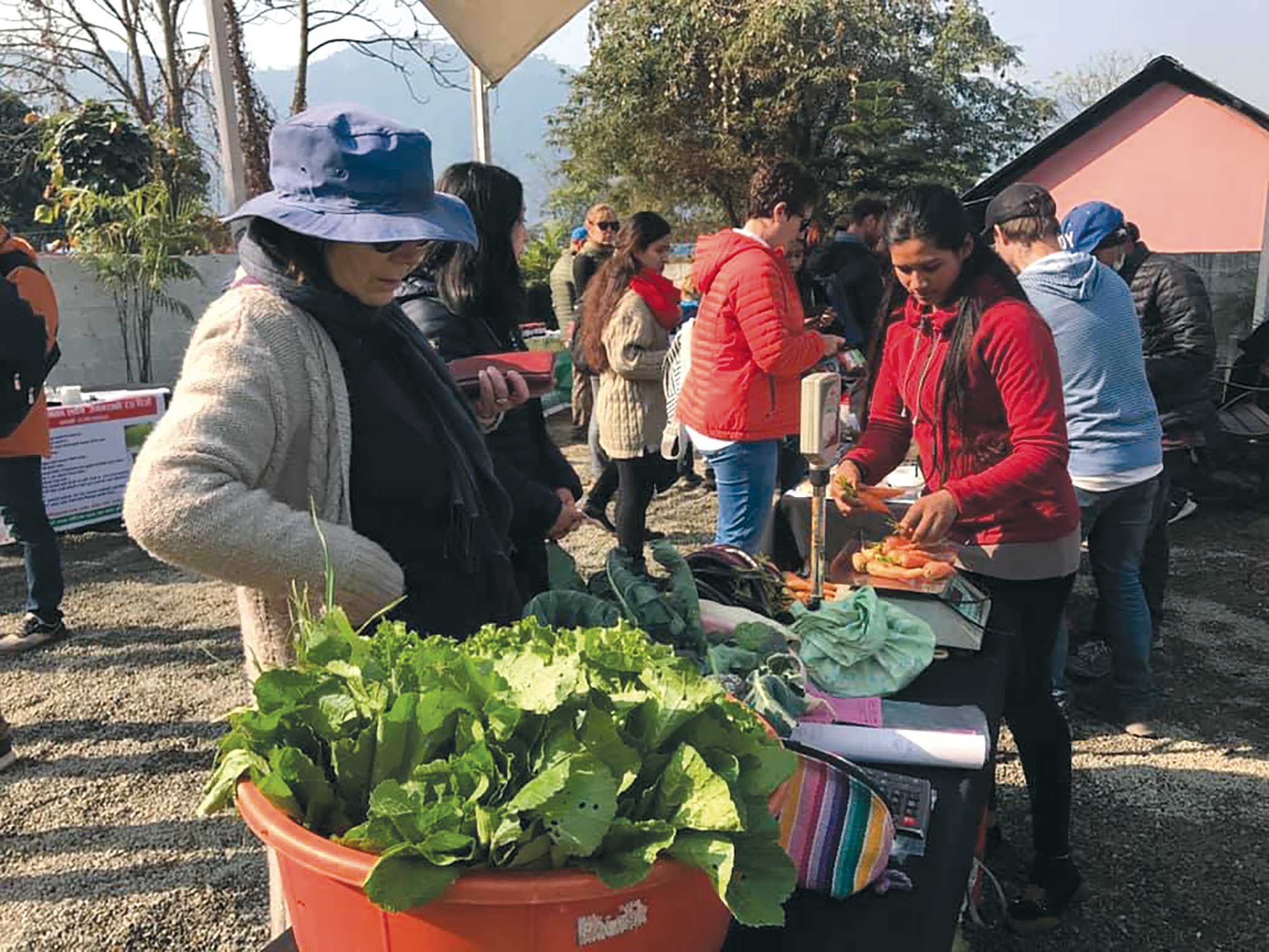In a time of nuclear living, the Newar ceremony of Jyah Janku celebrates age and togetherness.
She had forgotten her arthritis today; her knees easily folded before her, an easy smile resting on her face. Her grandchildren and great grand children crowded her room in a house in Patan’s Tabahal, gathered there to celebrate her second janku, a celebration of birth, age, life and a loving family.
 Widowed when her youngest child, my mother, was just a toddler, I had always seen my maternal aji – grandmother, wearing white and beige; an apple green blouse was the most color she wore. Standing in front of the mirror on the day of her janku, she stared at the widow in bridal red looking back at her. Quiet tears immediately wet her eyes.
Widowed when her youngest child, my mother, was just a toddler, I had always seen my maternal aji – grandmother, wearing white and beige; an apple green blouse was the most color she wore. Standing in front of the mirror on the day of her janku, she stared at the widow in bridal red looking back at her. Quiet tears immediately wet her eyes.
The term janku can imply different things at different stages of a Newar’s life. Macha (child) janku is the rice feeding ceremony for infants. Jyah janku on the other hand is a ceremony performed at a later stage in a Newar person’s life, to mark one’s longevity. There are five variations of this ceremony too. Bhimratharohan at 77 years, 7 months and 7 days old, Chadraratharohan at 83 years, 4 months and 4 days, Devaratharohan at 88 years, 8 months and 8 days, Divyaratharohan at 99 years, 9 months, 9 days and the last one when a person lives to see 105 years, 8 months and 8 days.
“A janku is celebrated at such defined ages for two reasons,” says Deepak Bajracharya, a Newar gurju (high priest). According to Newar religious texts, the particular ages for the ceremonies mark inauspicious times in a person’s life, times when even the smallest hurdle might pose a serious threat to one’s life. The various rituals in the ceremony appease particular deities to help a person overcome these potential problems. Before modern medicine became readily available in the country, people would live to an average of 60 to 65 years. Reaching 77 and beyond therefore, equalled someone getting a new life. This is the second reason for a janku. The title of thhakali, a senior of the community, is bestowed upon the person after their janku, with some even considering them a living god (or goddess).
It is certainly no fluke that ceremonies that mark birth and the later stages of a Newar person’s life have a common name. The Newar community is predominantly Buddhist, although most of them celebrate major Hindu festivals with equal enthusiasm. With so many references to each religion in the other’s holy texts, it is only natural that they share many commonalities. As a Newar Buddhist, I myself have come across many philosophies about the meaning of life, my final interpretation being that life is but a journey from one stage (birth) to another (death), the body being but a vessel for an indestructible, travelling soul.










